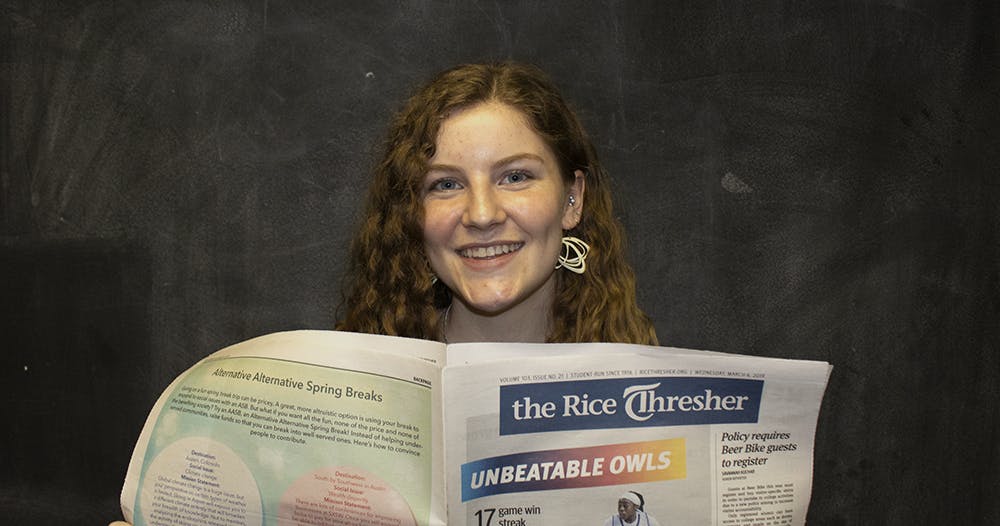Make low-income students feel welcome at Rice

Sometimes as I walk around campus, I have to remind myself that I belong here and this is my school. I think that Rice is not truly mine because I can’t afford my own education. While I am incredibly grateful for the financial aid I receive and the opportunity I’ve been given to attend Rice, I am often reminded that my financial situation is uncommon at this university.
The first reminder occurred at the beginning of this year when, like everyone else on campus, I was automatically charged $2,482 for health insurance. Student insurance can only be waived if students can prove that their existing insurance is comparable to Rice’s student insurance. One of the qualifications to waive enrollment, arguably the most important, is that the deductible doesn’t exceed $5,000 per person insured. Given the fact that insurance plans with higher deductibles generally are more affordable, this policy hurts students from a low-income background, especially those who can’t pay for insurance in the first place.
The cost of student insurance shouldn’t be an additional burden in the process of paying for college. While offering insurance through the school can provide coverage to those who might not have had access to insurance previously, the cost of student insurance presents a barrier to health care. By adding a specific provision for health insurance for those who can’t afford it, the Rice Investment could make our school more accessible for those from different backgrounds.
The second reminder of my financial situation comes when I remember that the issues that I face aren’t always relatable. Other people complain about being a broke college student, too. Sometimes it made me think I’m not alone in the way that I feel about money: pressure to make the most of my expensive education and guilt that I didn’t go to a less expensive school or one that guaranteed a full scholarship all four years. But then those same people go on their annual expensive summer vacation to Europe and I’m left wondering if we really experience the same financial pressure.
From a more objective perspective, 64 percent of students at Rice come from the top 20 percent of household-income earners, and 50 percent of students come from the top 10 percent of household-income earners. The median income for Rice families is $160,800, a number that was shocking to me when I first read it. On the other hand, 4.9 percent come from the bottom 20 percent of household-income earners. Only 15 percent of students receive Pell Grants.
From the way that other students talked about money, I thought that a lot of us were similarly struggling, but students who are in a similar financial position as me make up a small portion of the Rice population. A lot of recent conversation on diversity has focused on race, as it should, but another aspect of diversity is economic background.
In many regards, the administration has many areas of improvement to make Rice more accessible for students from low-income backgrounds, but the goal of inclusivity should not fall on the administration alone. The third reminder of my financial situation occurred when a budgeting activity for one of my classes was treated as a joke or an unthinkable hypothetical, not the reality that people living paycheck-to-paycheck face every time they have to weigh meeting a need versus paying the bills.
My interactions with other students emphasize our differences. The fact that I am on a full scholarship is often met with jealousy. The fact that my insurance doesn’t cover dental and I haven’t been to the dentist in years? Not so much. The fact that I don’t have a car is strange. The fact that I got two jobs expressly to take the pressure off my family and not simply to build my resume? Even stranger. As students, we can do more to be aware of how our day-to-day rhetoric can make others feel out of place.
I am incredibly lucky to be at Rice. I feel anxious even writing this opinion piece because I know that being a student at Rice is a privilege in itself that many do not have and other students face similar or worse financial pressures. Additionally, other students have other aspects of their identity such as race and gender that bring different challenges to their sense of belonging at Rice. In other words, my account of life at Rice is certainly not the only one, but you can only find that out by including other students in campus conversations and initiatives. With the Rice Investment, many claimed that Rice would be more inclusive of students from low-income backgrounds, and to some extent, it did. However, consider perspectives outside your own, and you’ll find that Rice has some work to do to be as diverse as we can and should be.
More from The Rice Thresher
Turning heads, changing minds in difficult times
It goes without saying that we live in challenging times.
Rice should prioritize student works in public
If you have been going to class lately, you may have noticed the new “Repair Station” sculptural installation near Herzstein and Lovett Hall.
Paralysis in the neoliberal university
Trump’s attacks on university admissions and scholarship have laid bare the structural contradictions at the heart of the neoliberal university, viscerally embodied in the recent abduction of Columbia University student activist Mahmoud Khalil by ICE agents.


Please note All comments are eligible for publication by The Rice Thresher.